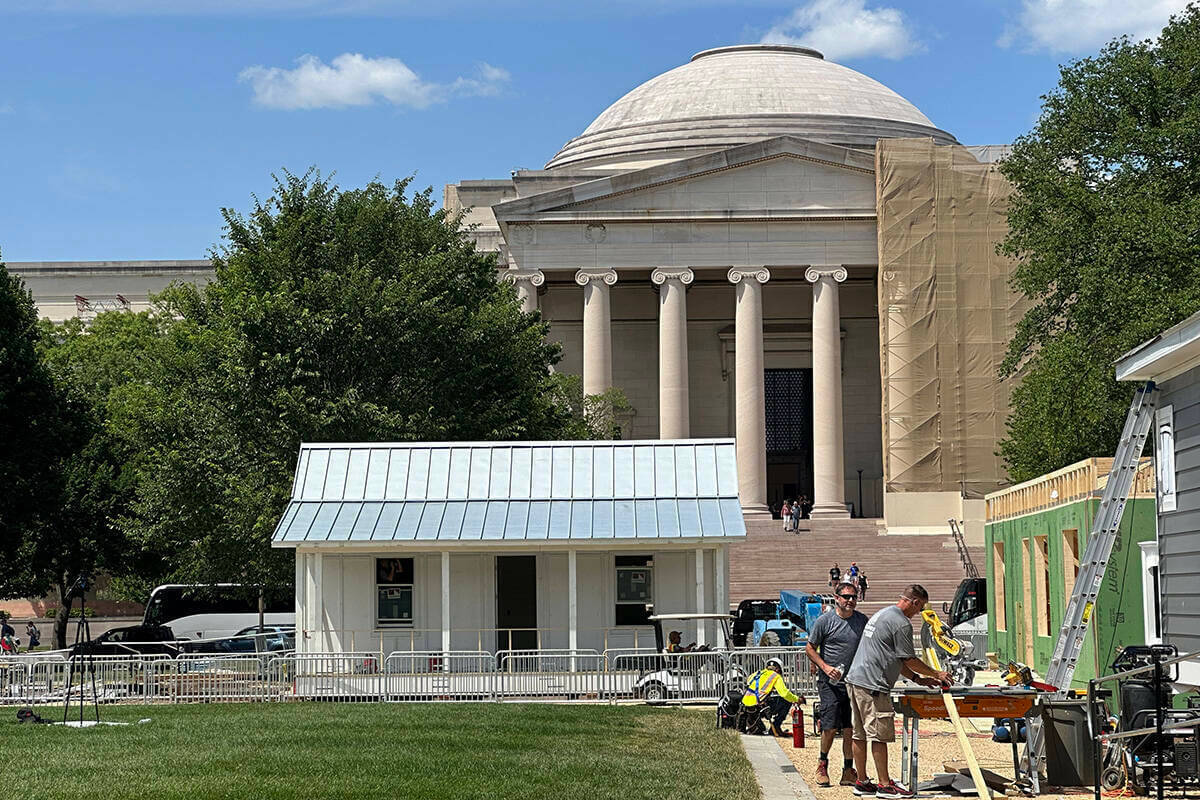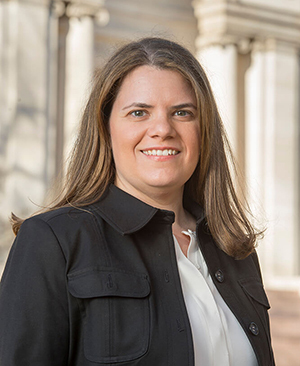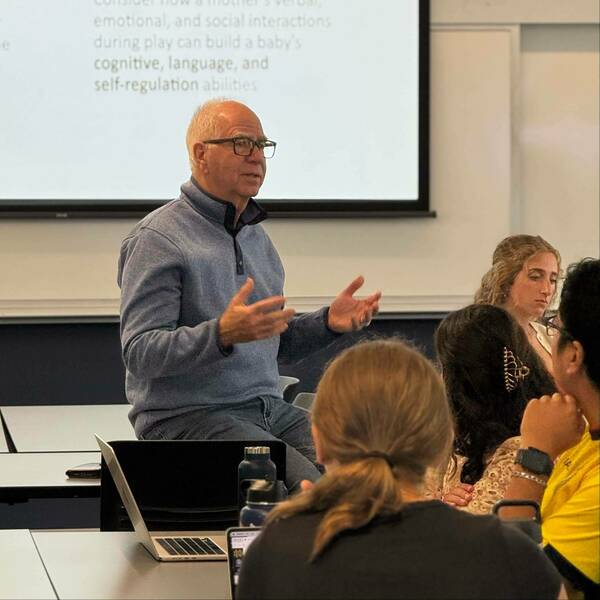Architecture professor selected to display concept home on National Mall in Washington, DC
 Marianne Cusato’s concept home being assembled in front of the National Gallery of Art in Washington, D.C.
Marianne Cusato’s concept home being assembled in front of the National Gallery of Art in Washington, D.C.Marianne Cusato, director of the Housing and Community Regeneration Initiative and a professor of the practice in the University of Notre Dame’s School of Architecture, has been selected to display her latest concept home in the 2023 Innovative Housing Showcase in Washington, D.C., from June 9-11.
The three-day showcase, hosted by the Office of Policy Development and Research, U.S. Department of Housing and Urban Development and the National Association of Home Builders, will include several dozen exhibits, featuring new building technologies and housing solutions designed to make housing more innovative, resilient and affordable for American families. More than 2,500 policymakers, housing industry representatives, members of the media and the general public are expected to attend.

Cusato and her company, Cypress Community Development Corp., will display a 540-square-foot accessory dwelling unit she designed, featuring a full kitchen, one bedroom and bath and a large front porch. The house, constructed of steel frame panels, is prefinished off-site and designed for rapid assembly in less than a week.
The goals of the project, Cusato said, are to reform federal disaster housing policy to maximize the reach of funding and to engage in a national discussion on improving housing affordability by streamlining the construction process through new wall assemblies and leveraging prefab construction.
“If you wait until the disaster happens to plan for disaster housing, it’s too late,” Cusato said. “We are advocating for a revision to the Stafford Act to create a strategic stockpile of community-friendly accessory dwelling units ready for immediate deployment and capable of contributing to the long-term recovery efforts.”
Cusato is renowned for her work on innovative housing solutions for disaster recovery and workforce housing — including the design of the Katrina Cottage, created as an alternative to FEMA trailers and offered to those on the Gulf Coast displaced by Hurricane Katrina in 2005. More than 450 Katrina Cottages were distributed in Louisiana and, in 2006, President George W. Bush signed a revision to the Stafford Act, allowing FEMA to build permanent structures modeled on the Katrina Cottage.
Cusato, who received a research grant from the School of Architecture in support of the project, said this work is core to the mission of the University and to the Housing and Community Regeneration Initiative.
“We’re challenging policy, and we’re challenging defaults,” she said. “We need creative solutions to address the issues related to disaster recovery and resilience, affordable housing and decarbonization. This project examines how we can incentivize being the best stewards of the resources we have to make housing more attainable and resilient.”
Originally published by at news.nd.edu on June 07, 2023.
Latest Research
- Notre Dame to host summit on AI, faith and human flourishing, introducing new DELTA frameworkThe Institute for Ethics and the Common Good and the Notre Dame Ethics Initiative will host the Notre Dame Summit on AI, Faith and Human Flourishing on the University’s campus from Monday, Sept. 22 through Thursday, Sept. 25. This event will draw together a dynamic, ecumenical group of educators, faith leaders, technologists, journalists, policymakers and young people who believe in the enduring relevance of Christian ethical thought in a world of powerful AI.
- Preparing Global Leaders: Notre Dame Students Put Early Childhood Development Science into PracticeThis fall, Notre Dame students are turning research into real-world solutions. In a unique course, Early Childhood Development and Poverty Alleviation: A Global Perspective, 27 students are learning how the science of early childhood development can break cycles of poverty — and then applying…
- How can we have better conversations about environmental conservation? New Notre Dame research charts a path.As the planet faces mounting environmental crises, including a decline in global biodiversity, a new study from the University of Notre Dame calls for a seemingly simple yet transformative practice: better conversations. In a co-authored paper published in Conservation Biology, Daniel C. Miller outlines five key principles to foster more effective and inclusive dialogue about conservation. The paper builds on more than a decade of collaborative work in conservation social science and presents a framework to address one of the field’s most pressing yet underexamined issues—how conservationists talk to one another.
- ND research teams awarded funding to address sustainability challenges around the worldNotre Dame's Just Transformations to Sustainability Initiative has awarded funding to three cross-disciplinary faculty teams leading research on pressing sustainability issues—including forest conservation in the Amazon, watershed…
- Fighting to improve hurricane forecastsResearchers at Notre Dame are improving hurricane forecast accuracy, giving officials time to evacuate and protect residents.
- 2025 Naughton Fellowships awarded to four joint faculty projectsThe University of Notre Dame’s Naughton Fellowship program has announced its faculty awardees for the 2025-2026 cohort. Faculty from leading Irish universities and Notre Dame have come together to work on four research projects as a part of the Naughton Faculty…











